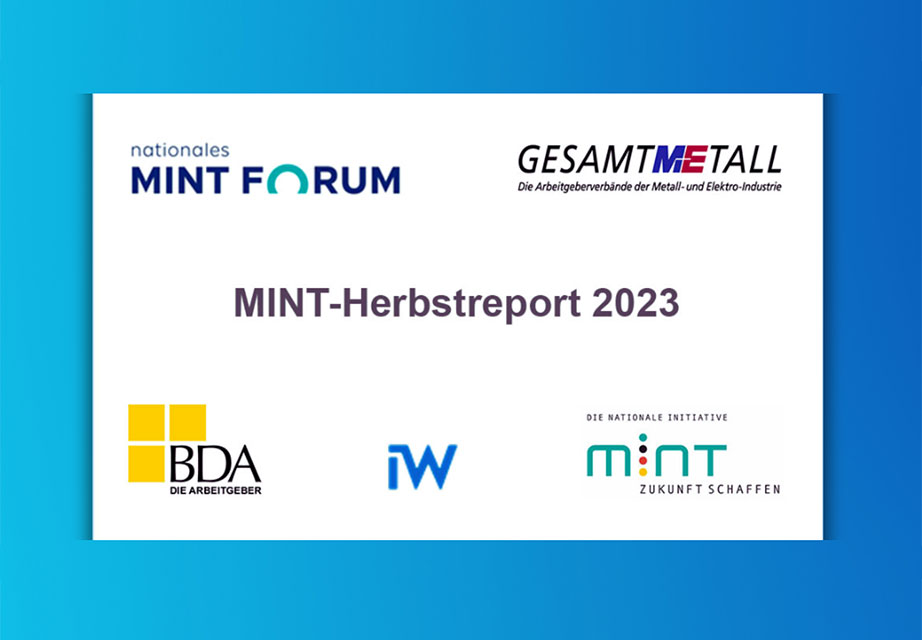- TOPICS
-
-
- Employment and Labour Market
- Labour law and collective bargaining policy
- General applicability
- Industrial action
- Labour & collective bargaining law
- Working time
- Time limit
- Works Constitution
- Bureaucracy reduction
- Data protection
- Protection against discrimination
- Parental leave
- Posting
- Insolvency
- Protection against dismissal
- Minimum wage
- Co-determination
- Mobile work
- Maternity protection
- Pandemic
- Care time
- Self-employment
- Tariff autonomy
- Collective Bargaining Agreement
- Collective bargaining unit
- Tariff policy
- Collective bargaining
- Collective agreement
- Part-time work
- Restructuring
- Holiday law
- Contracts for work
- Whistleblowing
- Temporary work
- Education and vocational training
- Training market
- Professional orientation
- Education policy
- Education 4.0
- Dual education
- dual study
- Permeability
- Early childhood education
- Higher Education Funding
- Lifelong learning
- Teacher Education
- Reorganization of education and training
- STEM Professionals
- Economic education
- Accreditation/Quality assurance
- SCHOOLBUSINESS Germany
- Digitalization and innovation
- Europe and International Affairs
- Social policy and social security
- Old-age poverty
- Work made in Germany
- Occupational safety
- Contribution and registration law
- Company pension scheme
- Shortage of company doctors
- Health insurance
- Long-term care insurance
- Mental health
- Pension insurance
- Riester pension
- Social self-government
- Social insurance
- Accident insurance
- The future of social security
- Taxes & Finances
- Economy & Society
-
-
-
- Newsroom
- The BDA
- Members

The economy lacks almost 286,000 workers in the STEM sector
Schools are facing a growing shortage of STEM teachers

Domestic STEM talent cannot meet the national demand for STEM workers in the long term. The STEM teacher shortage leads to a lack of basic STEM skills among pupils, which has an impact on their choice of training and career. The appreciation of teacher training as well as attractive further training opportunities and working conditions for teachers must be at the top of the education policy agenda.
Berlin, November 7, 2023: Despite the economic slowdown, the labor shortage in the STEM sector (science, technology, engineering and mathematics) remains at a high level. The STEM gap reached 285,800 in September 2023 - 15.5 percent below the record level of the previous year. In the coming years, the shortage of STEM workers is likely to increase significantly again, as companies expect an increase in demand for STEM workers in order to meet the challenges of climate protection and digitalization. At the same time, demographic change is leading to increasing replacement requirements, while there is a shortage of young talent in studies and training. In the medium term, there is a threat of a further decline in the number of young people in Germany, as pupils' performance in reading and STEM subjects is falling and there is a growing shortage of teachers at schools.
Prof. Dr. Axel Plünnecke, Head of the Education, Innovation and Migration Cluster at the Cologne Institute for Economic Research: "The STEM skills gap would be significantly higher today if the first successes in securing STEM skilled workers among women, older people and immigrants had not been achieved in the last ten years. The proportion of women in STEM professions has increased from 13.8% at the end of 2012 to 16.1% in March 2023. STEM employment of people aged 63 and over has risen by 153,700 in the last ten years, 65,500 of these alone because 61-63-year-olds stay in the labor market longer in subsequent years. The employment dynamic is particularly strong among immigrants - without success in immigration, there would be an additional shortage of around 413,800 STEM specialists."
Indra Hadeler, Managing Director Education and International Relations of the Gesamtmetall employers' association:
"The metal and electrical industry invests around 103 billion euros per year in research and development, including increasingly in climate protection and digitalization. This helps to achieve the sustainability goals, strengthens companies in competition and secures employment and prosperity in Germany. To achieve this, we urgently need STEM specialists, from skilled workers to engineers. We must therefore consistently counteract the acute shortage of teachers in STEM subjects. We urgently need concepts to attract more teachers. They are the most important key to STEM education. We must also not forget the vocational schools. The situation is already so alarming that individual measures are no longer enough, we need a whole package and we need it quickly."
Christina Ramb, Member of the Executive Board of the BDA: "Without enough young STEM talent, we will not be able to solve many pressing issues of the future. The first step into the STEM world is STEM lessons that are fun and arouse curiosity. Students' lack of STEM skills has a massive impact on their career choices. Many extracurricular partners can support schools, especially when there is a shortage of STEM teachers. There are numerous STEM stakeholders who provide a wide range of offers. The SCHULEWIRTSCHAFT network can also help with career guidance. In the long term, it is crucial to secure the STEM skills of pupils with the help of well-trained teachers - including lateral and lateral entrants."
Prof. Dr. Christoph Meinel, CEO of MINT Zukunft schaffen: "Digital skills, which must be taught in schools in particular, are particularly important for the digital transformation in all areas of our society. Germany needs a real educational breakthrough here. What is needed is a nationwide provision of digital infrastructures for school lessons, sustainable teaching and learning concepts, computer science in the timetables of all federal states, digitalization of school processes and cross-state efforts in the training and further education of teachers as well as lateral entrants and the deployment of multi-professional staff."
Edith Wolf and Prof. Dr. Carsten Busch, board members of the National STEM Forum: "If Germany is to remain a successful business location, both the skills crisis and the problems in the education system must be solved quickly. This requires a joint political approach at both federal and state level. The shortage of STEM teachers has multiple long-term negative effects: a reduced range of STEM subjects leads to a loss of skills and, in the medium term, influences students' decisions to take up vocational training or study in STEM disciplines. Only if the range and quality of teaching is guaranteed to a high degree can the education system achieve its goal of creating opportunities and participation for all children and young people and train the urgently needed skilled workers of tomorrow."
You can find the STEM Autumn Report 2023 here.
About the MINT Report
The MINT Report is produced twice a year by the Cologne Institute for Economic Research. The study is commissioned by the following members of the National MINT Forum: Confederation of German Employers' Associations, Employers' Federation Gesamtmetall and MINT Zukunft schaffen.






